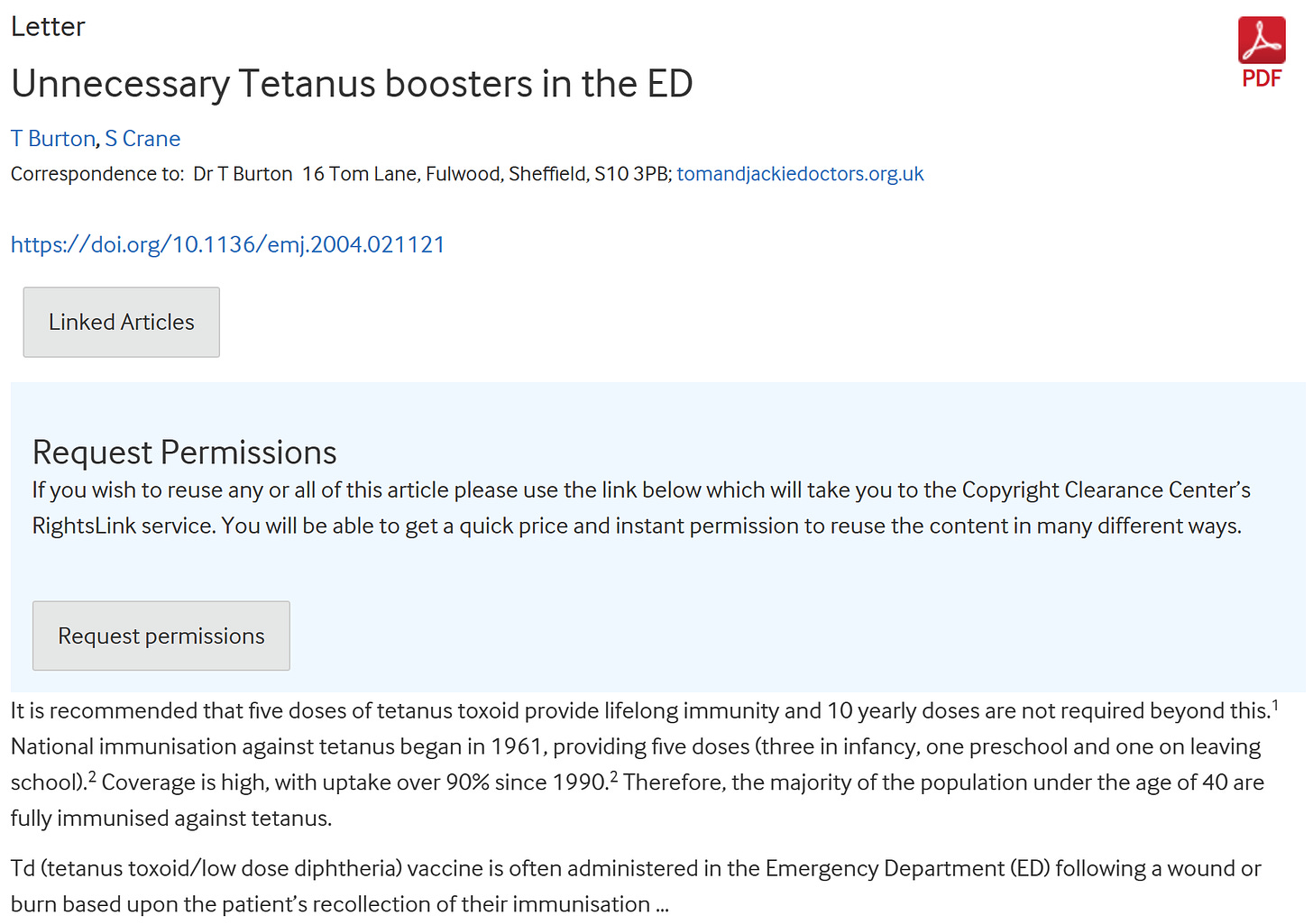Parsonage-Turner Brachial Neuritis Syndrome from Deltoid Vaccine Injection
Painful and Damaging Syndrome in the Shoulder and Arm can Occur from a High, Deep Injection
By Peter A. McCullough, MD, MPH
A recent follower on Twitter (X) told me he suffers from brachial neuritis otherwise known as Parsonage-Turner Syndrome which results in chronic pain in the arm and the shoulder that lasts for months to years. In his case it occurred after a tetanus vaccine—one that most would consider to be safe and routine in the prevention of clostridium tetani from deep tissue wounds in people who cannot recall if they are fully immunized.
Burton and Crane have commented that the vast majority of tetanus shots given to people under age 40 years in the emergency department are completely unnecessary because the routine schedule endured by people in this age group has already had the full complement of five shots for lifelong theoretical immunity. I wonder if this person on Twitter has a permanently damaged arm from a completely unnecessary shot?

From the website of personal injury attorney Leah Durant:
Mistakes made during administration of a vaccine – such as injecting the vaccine too high on the shoulder or too deep into the arm – can lead to brachial neuritis. Instances of brachial neuritis have been linked to vaccines including, but not limited to: the flu shot, tetanus shot, HPV vaccination and the vaccine for Hepatitis B.
Individuals who suffer brachial neuritis due to vaccine administration often experience sudden and severe shoulder pain. This pain usually surfaces within days of the vaccination. However, for purposes of obtaining compensation under the National Vaccine Injury Compensation Program, the U.S. Department of Health and Human Services concedes that for specific vaccines, brachial neuritis, which occurs anywhere from 2 to 28 days after vaccine administration, as vaccine-related.
In most cases, the pain from brachial neuritis is restricted to the upper arm and shoulder near the site of the vaccine injection. However, in some instances patients have reported symmetrical pain in their other arm as well.
Other common symptoms of brachial neuritis in the arm and shoulder include:
Lack of muscle control
Loss of sensation
Pain transitioning to weakness or limpness
Paralysis in the arm
Keep reading with a 7-day free trial
Subscribe to Courageous Discourse™ with Dr. Peter McCullough & John Leake to keep reading this post and get 7 days of free access to the full post archives.




